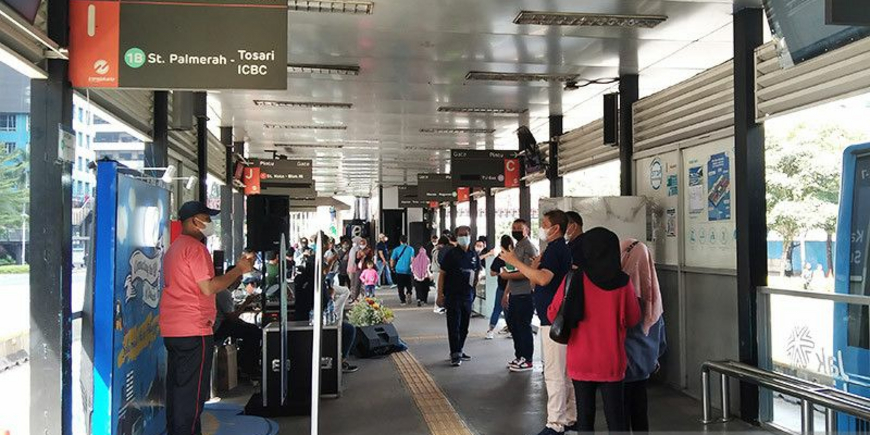Jakarta (ANTARA) – The DKI Transportation Agency ensures that urban public transportation (angkot) tariffs integrated with JakLingko will not increase due to adjustments to subsidized fuel oil (BBM) prices.
"There is no increase in fares for public transportation in Jakarta which has been integrated into the JakLingko program," said Head of the DKI Transportation Agency, Syafrin Liputo, in Jakarta, Wednesday.
The public transportation that has been integrated with JakLingko includes TransJakarta, both for main corridors via bus stops (BRT) and without bus stops or non-BRT. Meanwhile, for regular public transportation which has not yet been integrated with JakLingko, fare adjustments are still being discussed by the Jakarta City Transportation Council (DTKJ).
Later on, the results of this decision will be proposed to the Governor of DKI for determination. Even so, Syafrin has not provided detailed projections of the adjustment amount for fares for regular public transportation services that have not been integrated with JakLingko. The DKI Provincial Government provides subsidies to three modes of mass public transportation. The amount of subsidies for the three modes of mass transportation (MRT, LRT Jakarta and TransJakarta) in 2019 reached IDR 14 billion, then in 2020 it reached IDR 4 billion and in 2021 it reached IDR 6 billion. Meanwhile, the DKI Jakarta Land Transport Organization (Organda) plans to adjust urban public transport fares following an increase in subsidized fuel prices in the range of around 12.5 to 17.5 percent.
"We are discussing the amount so it doesn't burden the people too much," said DKI Organda Chairman Shafruhan Sinungan.
He gave an example of the fare for public transportation currently reaching around IDR 5,000 and efforts are made not to exceed IDR 5,500 or it is estimated that it will increase by IDR 500 so as not to burden consumers. His party is currently finalizing plans to increase urban public transport fares together with DTKJ and the DKI Transportation Agency which will be completed in the near future. Currently, he continued, the number of microbuses that have not been integrated has reached around 4,500 units, out of a total of around 6,600 units. Meanwhile, the remaining 2,100 microbus units have been integrated with JakLingko under the name Mikrotrans.









